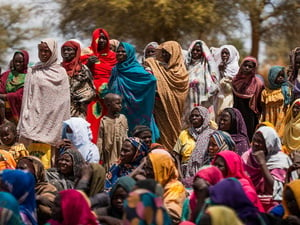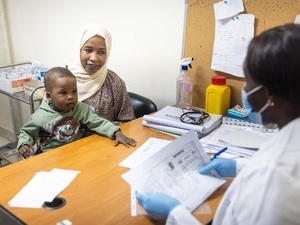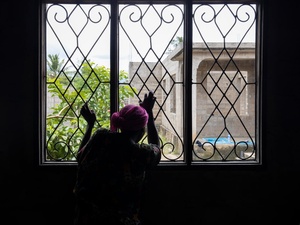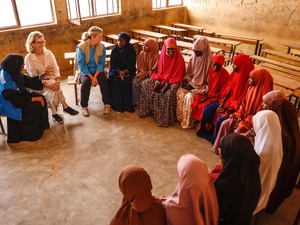UNHCR starts relocation of 15,000 stranded South Sudanese refugees in Ethiopia
UNHCR starts relocation of 15,000 stranded South Sudanese refugees in Ethiopia
On 17 November UNHCR has started the relocation by boat of some 15,000 South Sudanese refugees from the Matar way station in western Ethiopia with the movement of the first group of 125 refugees. Later today (Tuesday), they are expected to arrive at Pugnido refugee camp, at a distance of nearly 300 km.
Twenty-nine other refugees with special needs, including blind people, pregnant women, nursing mothers and the elderly who cannot travel by boat, will be flown on a UNHCR chartered helicopter.
The refugees had been stranded at the way station close to the border with South Sudan after the Nip Nip camp, to which they were initially going, was suddenly flooded as a result of heavy seasonal rains and the Baro river bursting its banks in August this year. Pugnido is an existing refugees camp, already home to some 45,000 refugees, mostly from South Sudan.
The refugees were provided water, high energy biscuits, and relief items such as blankets as they boarded the boats wearing life jackets. Two boats were used for this first relocation exercise, including one for passengers and the other for luggage. The refugees started their two-day journey by sailing on the Baro river in a motorized boat from Matar way station.
Upon arrival, the refugees were provided with a hot meal at the Itang transit facility where they spent one night before continuing their journey by road. The transit centre is being managed by IOM, the organization that is also facilitating the transport of the refugees.
More than 191,000 South Sudanese refugees have sought refuge in Ethiopia's Gambella region since conflict broke out in South Sudan in mid-December 2013. Some 100 refugees continue to cross into Ethiopia per day mainly through the Burbiey border entry point from Upper Nile and Jonglei states in South Sudan. The new arrivals cite insecurity, including sporadic fighting between rival warring factions amid food insecurity as reasons for their flight. A multi-agency response led by the government of Ethiopia and UNHCR is providing protection and assistance to these refugees. Ethiopia is currently Africa's largest refugee hosting country with more than 600,000 refugees overtaking Kenya.
For further information, please contact:
- • In Addis Ababa, Kisut Gebre Egziabher on mobile +25 19 11 20 89 01
- • In Addis Ababa, Sulaiman Momodu, mobile +251 935 978519
- • In Geneva, Karin de Gruijl on mobile +41 79 255 92 13









